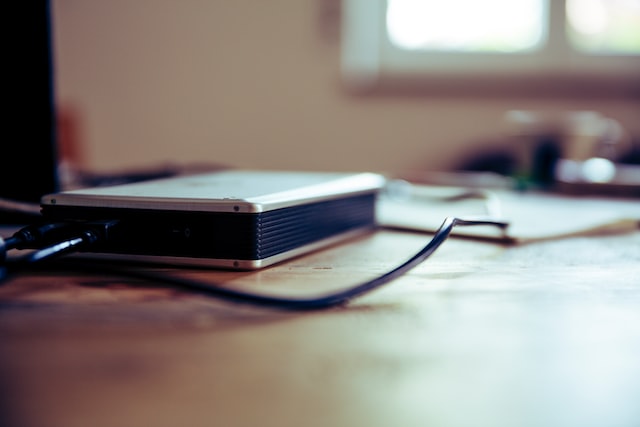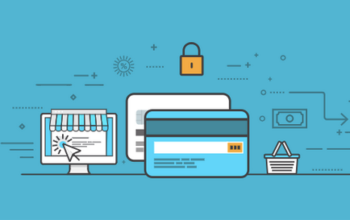Are you backing up your data the right way? You might not be if you’re using a backup tape. While they are still popular methods of backing up data, many different types of backup tapes are on the market, and it can be challenging to decide which one is right for you.
Before deciding, you should consider capacity, durability, and price factors. Backing up your data is essential to protect yourself from data loss in a disaster. A backup tape is one option for backing up your data, but not all backup tapes are created equal. So how do you choose the best backup tape for your needs?
A backup tape is a data storage device that stores copies of electronic data. This data can be stored on various media, including magnetic tape, optical disk, and solid-state memory devices. The main purpose of a backup tape is to provide a way to restore lost or damaged data in the event of a system failure.
Because backup tapes can be stored offline, they are also often used to create an additional level of protection against data loss due to theft, natural disasters, or hardware failures. There are several factors to consider when choosing a backup tape solution, including capacity, reliability, and compatibility with your existing system.
The Benefits of Using a Backup Tape
There are many benefits to using a backup tape, even with some risks. these includes:
- Reduced Risk of Data Lost: One of the most significant advantages of using a backup tape is that it can help reduce the data loss risk. By storing copies of your data on a backup tape, you can rest assured knowing that you will be able to recover your data in the event of a system failure.
- Increased Protection Against Disasters: Another benefit of using a backup tape is that it can help protect your data in the event of a disaster. If your computer system is damaged or destroyed by a fire, flood, or other disasters, your backup tapes can be used to restore your lost data.
- Improved Security: Backup tapes like IBM 3592 data tape media can also provide extra security for your data. If your tapes are stored off-site, they can be used to restore your data if your premises are burglarized or vandalized.
Different Types of Backup Tapes
There are a few different types of backup tapes available today.
Digital Linear Tape (DLT)
Digital Linear Tape, or DLT, is a type of backup tape that uses digital data storage technology. DLT backup tapes are famous because they offer high capacity and reliability. However, they can be expensive and not compatible with all systems.
Linear Tape-Open (LTO)
Linear Tape-Open, or LTO, is another type of backup tape that uses digital data storage technology. LTO backup tapes are less expensive than DLT backup tapes, but they have lower capacity and are not as reliable.
Magnetic Tape Data Cartridge (MTDC)
Magnetic Tape Data Cartridges, or MTDCs, is a type of backup tape that uses analog data storage technology. MTDCs are not as popular as DLT or LTO backup tapes, but they are less expensive and compatible with some systems.
How to Choose the Best Backup Tape for Your Needs?
When choosing a backup tape solution, you should consider a few factors: capacity, reliability, compatibility, and cost. Here’s a closer look at each of these factors:
- Capacity: The first thing you’ll want to consider is the capacity of the backup tape. How much data do you need to store? If you have a large amount of data to keep, you’ll need a backup tape with a high capacity. On the other hand, if you have a small amount of data to store, you can get away with a backup tape with a lower capacity.
- Reliability: Another vital factor to consider is the reliability of the backup tape. How often do you need to access the data on the backup tape? If you need to access the data on the backup tape frequently, you’ll want to choose a backup tape that is more reliable. On the other hand, if you only need to access the data on the backup tape occasionally, you can choose a less reliable backup tape.
- Compatibility: You’ll also want to consider compatibility when choosing a backup tape. Is the backup tape compatible with your existing system? If not, you may need to purchase additional hardware or software to use the backup tape.
- Cost: Finally, you’ll want to consider the cost of the backup tape. Backup tapes can range in price from a few dollars to several hundred dollars. When choosing a backup tape, you’ll want to balance the cost with the other factors on this list.
Now that you know how to choose the best backup tape for your needs, you can select a backup tape solution that meets your specific requirements.
Tips for Using a Backup Tape
If you’re using a backup tape, there are a few things you can do to ensure that your data is protected:
- Store the Backup Tape in a Safe Place: The first thing you’ll want to do is store the backup tape in a safe place. If possible, keep the backup tape off-site in a fireproof and waterproof container. This will help protect the backup tape from damage in a fire or flood.
- Label the Backup Tape: You should also label the backup tape to identify it quickly. Include information such as the date of the backup, the type of data stored on the backup, and the location of the backup.
- Test the Backup Tape: Finally, you’ll want to test the backup tape to ensure it works. Restore data from the backup tape to your computer and ensure that all data is intact. If possible, test the backup tape regularly.
By following these tips, you can ensure that your data is protected if something happens to your computer.
The Best Backup Tape
Backup tapes are a vital part of any data protection strategy. You should consider capacity, reliability, compatibility, and cost factors when choosing a backup tape. You should also store the backup tape in a safe place and label it for easy identification.
Finally, you’ll want to test the backup tape regularly to ensure it works. By following these tips, you can ensure that your data is protected if something happens to your computer.
Related Posts
Hi there! I’m Sethu, your go-to guy for all things tech, travel, internet, movies, and business tips. I love sharing insights and stories that make life more interesting. Let’s explore the world together, one article at a time!

![Top 10 Best Compression Ankle Socks of 2021 [Ranked & Reviewed]](https://www.worthview.com/wp-content/uploads/2021/01/Ankle-Socks-150x150.jpg?x35250)









